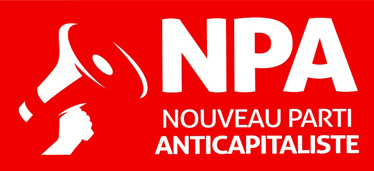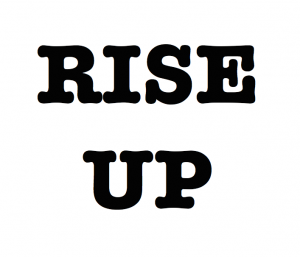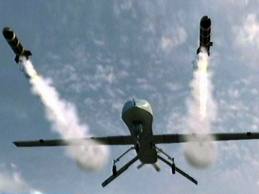We bomb them. They bomb us.
Chris Hedges, journalist and senior fellow at The Nation Institute, discusses the Brussels Attacks for The Real News.
From NOEBIE.net
Brian K. Noe · ·
Chris Hedges, journalist and senior fellow at The Nation Institute, discusses the Brussels Attacks for The Real News.
Brian K. Noe · ·

The New Anti-Capitalist Party, one of the leading organizations on the Left in France, issued a statement today, after the attacks in Paris of the evening of 13 November.
The only response to wars and terrorism is the unity of the workers and people, over and above their origins, their skin colour, their religions, across the borders, to fight together against those who want to silence them, to dominate them, to do away with this capitalist system which generates cruelty.
Read the Full Statement: The cruelty of imperialist wars results in the cruelty of terrorism | International Viewpoint
Today, we remember Paris. We also remember Beirut and Gaza and Kunduz, and all of the innocent victims of violence created by a system which has outlived its usefulness.
Brian K. Noe · ·
Over the past four years, as I began to awaken politically, it’s become important to me not only to try to recognize and understand the causes of injustices in our society, but to actually make a contribution to the struggles against them. The challenge has been to identify opportunities to make a difference, living in a small (and fairly conservative) metropolitan area. Outside the realm of party politics, which I have mostly rejected as a dead end, there is a decided dearth of organized activism in my community. This was even more the case when we lived in a small rural community in the southern part of the state.
I more or less stumbled on to a set of pursuits that form the core of my activism. I didn’t set out consciously or methodically, but simply started working on things that I thought were of value, and only realized in hindsight that they essentially comprise a political program that turns out to be just what I would have wanted to undertake. Here’s a quick list of some of those things. I share it not to pat myself on the back, nor to seek the approval or praise of others, but to spark the imagination of folks who face a similar predicament. I’d also love to hear about your projects, and what has drawn you to your own personal activism, so please feel free to comment below.
I joined a union. In another day, even the billionaires recognized the value of labor unions to democracy. None other than J. Paul Getty once said “I do believe in unions and believe that free, honest labor unions are our greatest guarantees of continuing prosperity and our strongest bulwark against social or economic totalitarianism.” Tyrants recognize this, and have routinely suppressed organized labor on the path to total power.
Although I was raised in a union home, I had never held a union card in my life. I worked in jobs where we were not organized, and it never occurred to me that we could be. Once I became more conscious, and began researching options, I was delighted to learn that the Industrial Workers of the World organize the worker, not the job. I joined the Wobblies in November of 2011. My location and the type of work I do precludes me from being a participant in most direct face-to-face activities of the union branch, but the opportunity to lend support and solidarity to my union sisters and brothers (and to learn from them) remotely has been wonderful. I’m now also a dues paying member of the National Writers Union, UAW Local 1981. The mere act of identifying as a union member has brought a new perspective to daily life, and has opened up conversations and opportunities to further the cause that were not possible before.
I became active in the NAACP. Much like joining a union, it had not occurred to me that someone like me could be a part of an organization like the NAACP. If you click on the “About” section of this site, you’ll see from the picture that I am a grey headed white guy. I didn’t know that the NAACP was open to people of all races, and didn’t know whether I would be welcome in its ranks. But when I read about some pamphleting that had been done in our county by the KKK, I felt compelled to do something formal and substantive to stand against racism. I found welcoming arms and the fellowship of kindred souls in Kankakee Branch 3035. I created a new website for the branch, got involved in the city council campaigns of some of our members, and am currently working to organize a community town hall on race.
I marched for marriage equality. This was at my wife’s prompting. It was a small demonstration, organized by the LGBT community and their allies, friends and family members here. We walked from the farmers market gazebo to the county courthouse, where we heard speeches and learned about the bills that were being considered in the state legislature. Besides showing solidarity by taking a visible public stand for justice, my wife and I also became acquainted with some of the local organizers. We joined them when they met with our state representative, and advocated for their rights under the principle of religious liberty. I also subsequently helped organize their tabling at the county fair. These efforts seemed almost trivial to me at the time, but thousands of similar efforts across the nation brought the movement to victory.
I started a community singalong and a radical reading group. Pete Seeger had great confidence in the power of song to change the world. He said this.
“Finding the right songs and singing them over and over is a way to start. And when one person taps out a beat, while another leads into the melody, or when three people discover a harmony they never knew existed, or a crowd joins in on a chorus as though to raise the ceiling a few feet higher, then they also know there is hope for the world.”
So on May Day of 2014, we held our first gathering of the Key City Singalong. We sing a wide variety of songs, in fact, everyone who attends gets to decide what we’ll sing. So it’s not all specifically songs about social issues, but we do sing our share of old union hymns and other songs of relevance. We are also creating a small community of people who demonstrate, each month, that there are things of value in the world that are not commodities.
This month will also mark the first meeting of the Chicago Southland Jacobin Reading Group. It’s too early to tell whether we’ll be successful in creating and sustaining any scale of interest in monthly discussions of explicitly socialist ideas in the area where I live, but I have hopes.
Both of these events are held at Feed Arts and Cultural Center, where I’m a resident artist. The place also hosts lots of other wonderful activities to build community and nurture the arts. We’ve even had concerts from notable singers in the political folkie tradition, like Matthew Grimm and David Rovics.
I help out at a food pantry. Pope Francis says this is how prayer works: “You pray for the hungry, then you feed them.” Although our family contributes funds to organizations that feed and care for others, I wanted to get involved directly in some work that helps to alleviate the effects of poverty and meets the basic needs of people in our community. After speaking with Sister Denise Glazik, who is a Pastoral Associate at our church, I began volunteering at the Center of Hope. It’s about an hour of honest work on Thursday morning, unloading trucks, sweeping and mopping floors, stocking shelves and such. I find it to be one of the most satisfying and rewarding activities of the entire week.
I’m working to organize against the military recruitment of our children. While attending a talk in Chicago last month about the realities of the war on terror, one question was stirring in my heart. What can I do about this? Our nation’s unrestrained militarism around the globe seems like just too big an issue to approach. Fortunately, the presenters mentioned in their talk that under the No Child Left Behind legislation, schools were compelled to give the personal data of students to military recruiters unless a parent explicitly opts out, and that groups formed to educate parents on the issue were springing up around the country. I’ve begun to reach out to school board members and others about this issue, and plan to make it a project in the coming months.
Will any of this matter? Considering the massive and daunting problems we face, we may not know for a long time, perhaps not even in our lifetimes, whether any of our efforts will be enough. I do know that each of these activities are concrete, practical and have potential. Beyond that, they make sense in terms of the grand narrative of our era. The principal menace in our world today is an ideology centered on corporate power, militarism, racism, anti-intellectualism and attacks on freedom and democracy. So to fight the good fight we join unions. We work against the war machine. We build friendships and unity across racial lines. We support the arts and cultural literacy. We engage in intellectual pursuits and discussions. We feed the hungry.
When we do any of that, we rise up against the forces of greed and death. Whether it will be enough to turn the tide in that struggle, I know not. But I must believe that it matters. There’s just no sense in believing that there’s nothing we can do.

Brian K. Noe · ·
President Obama has chosen to operate his drone war in such unprecedented, absurd and arguably illegal secrecy that even in a rare burst of compelled transparency yesterday, neither he nor his press secretary could actually bring themselves to say the word “drone.”
Read More: The Word That Cannot Be Uttered (It’s Drones) – The Intercept
Brian K. Noe · ·
Afghan government troops and civilian paramilitary units, trained and sanctioned by the United States, are routinely terrorizing the Afghan people, according to a Human Rights Watch report. The report indicated that the government in Kabul rules over a network of criminals on a spree of plunder, not subject to legal accountability.
…forces under the command of Hakim Shujoyi have killed dozens of civilians in Uruzgan province, yet despite a warrant for his arrest he remains at large and evidence suggests he has enjoyed the support of US forces. In Paktika province, Afghan Local Police forces under the command of Azizullah,an ethnic Tajik who, as of June 2014, was a commander of the local ALP in Urgun district, have committed multiple kidnappings and killings. Azizullah has worked closely with US Special Forces despite their awareness of his reputation for unlawful brutality.
Read the press release: Afghanistan: Abusive Strongmen Escape Justice | Human Rights Watch.
Brian K. Noe · ·
Rory Fanning, author of Worth Fighting For: An Army Ranger’s Journey Out of the Military and Across America, writes a letter to a young Army Ranger.
Read it: Tomgram: Rory Fanning, Unpacking the War on Terror | TomDispatch.
Brian K. Noe · ·
 Charles Pierson reports.
Charles Pierson reports.
“2014 was a good year for US killer drones. In October, the US celebrated (if that is the word) its 400th drone strike on Pakistan. Unable to attend the festivities were the 2,379 Pakistanis killed by US drones since 2004. Of these, only 12% of the victims who have been identified have been linked to militant organizations, this according to a report from the British-based Bureau of Investigative Journalism.”
Read the full article: The Year in Drones » CounterPunch: Tells the Facts, Names the Names.
Brian K. Noe · ·
The mainstream media would have us believe that it’s a war between a terrorist group called ISIS, and the U.S. installed government of Iraq, led by Prime Minister Nuri al-Maliki – but is it really just a sectarian battle between the Sunni terrorists and the Shiite-dominated government, with the people of Iraq caught in the middle?
Not according to Michael Schwartz.
For the last couple of years, local folks in the Sunni areas of Iraq–many of whom are now involved in this insurgency–have been organizing protests, nonviolent and violent, against the government, based on numerous justified grievances.
As the government has escalated its repression of these protests, what is essentially a guerrilla war has developed (or rather a large number of uncoordinated local guerrilla-type insurgencies) in the various cities and towns in Anbar, Nineveh and other northwest provinces. ISIS–with a multi-local presence in many, but not all, of the local areas–is an (often vicious) element in the mix. It sometimes takes leadership, but most often, it is not the dominant force in any locality.
Read On: Understanding the crisis in Iraq | SocialistWorker.org.
Brian K. Noe · ·
Democracy Now hosted a debate this past week between former CIA acting general counsel John Rizzo and human rights attorney Scott Horton.
The debate sheds light on the issue as the Senate Select Committee on Intelligence feuds with the CIA over the declassification of its 6,000-page report on the agency’s secret detention and interrogation programs.
Read the transcript or watch the video here: A Debate on Torture: Legal Architect of CIA Secret Prisons, Rendition vs. Human Rights Attorney | Democracy Now!.